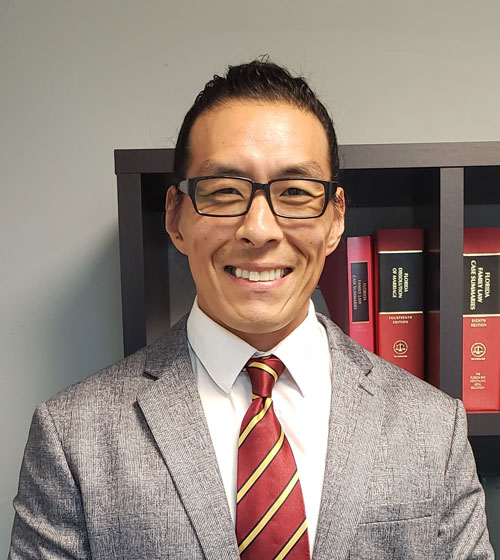
National Crime Victims’ Rights Week begins on Sunday, April 24, 2022 and will be observed through April 30, 2022. This weeklong initiative promotes victims’ rights and honors victims of crime and those who advocate on their behalf.
Article I, Section 16 (b)(11)(e) of the Florida Constitution defines a “victim” of crime as a person who suffers direct or threatened physical, psychological, or financial harm as a result of the commission or attempted commission of a crime or delinquent act or against whom the crime or delinquent act is committed. The Family Law and Victims of Crime Unit at Coast to Coast Legal Aid of South Florida (CCLA) represents victims of intimate partner violence and seniors age 60 and older to and protects their rights under Florida’s “Marsy’s Law” in both misdemeanor and felony criminal courts. The attorneys advocate for victims to make sure their rights are asserted, recognized, protected, and enforced in the criminal cases against their abusers.
This year’s National Crime Victims’ Rights Week theme is “rights, access, equity, for all victims”. This is critically important for the victims’ rights movement. To do this, we work together with our community partners to educate victims about their rights, help them understand what those rights are, and learn how to assert and enforce them in criminal court. The public can help by raising awareness that victims have the right to confidentiality of information, the right to be present at any court proceeding, the right to be heard at these hearings, and the right to confer with the prosecutor handling the criminal case. However, just knowing about their rights is not enough. Victims must be given access to the courts to exercise these rights. By collaborating with our community-based organizations like Women in Distress, Broward Domestic Violence Council, Broward Victim’s Rights Coalition, law enforcement based victim advocates, and the Office of the State Attorney and their victim advocates, we are able to make sure victims are heard, informed about their rights, and provided with a much-needed support system.
CCLA works with victim advocates, allied professionals, and selfless volunteers who tirelessly work protecting victims’ rights and provide critical, needed services, including pro bono attorneys who also take on cases for victims of other types of crime such as child sexual abuse.
Victims may be faced with numerous barriers after they are victimized. Many victims have limited knowledge on what to expect once their abuser is arrested. With countless questions, and seldom anyone to lean on to get knowledgeable answers, it is critical for victims to reach out to legal aid to learn about the rights they have under Florida’s version of “Marsy’s Law”. When victims do not know their rights, and do not get answers to their questions, many victims become frustrated and feel like no one is helping them or listening to them. Many times victims’ frustration with the criminal justice system leads to victims no longer cooperating with the prosecution or participating with the criminal case against their abuser. Without a cooperative victim, often a prosecutor dismisses the criminal charges and any criminal no contact order in place, and the abuser is then free to have contact with the victim (unless there is a civil injunction in place).
For example, a Defendant was arrested and charged with one count of Domestic Battery by Strangulation and one count of Domestic Battery. The Court issued a stay away and no contact order as part of the Defendant’s pretrial release conditions. CCLA’s Client, the victim in the case, was also granted a civil Injunction for Protection from the Defendant. Shortly after the incident, the Client relocated to a new address and our CCLA attorney filed a non-disclosure request on behalf of the Client to make sure the new contact information was redacted from any public records pursuant to Florida’s “Marsy’s Law”. However, the Defendant somehow found out where the Client relocated to, and moved into the apartment building next to Client. Client and the CCLA attorney worked with law enforcement to have the Defendant criminally charged with a violation of injunction and/or violation of pretrial release conditions. The Defendant was ultimately arrested again and charged with violation of pretrial release conditions and ordered to be fitted with a GPS monitoring device for the Client’s safety.
Months later, the Defendant’s attorney filed a Motion to Remove GPS Monitoring Device. However, no Notice of Hearing was provided to Client or CCLA’s attorney, or the prosecutor. The Defendant’s attorney unilaterally requested the hearing and the Court granted hearing time only two days after the motion was filed. The prosecutor contacted the victim’s CCLA attorney regarding the developments and agreed that the motion should not be heard because Client’s right to be properly noticed of any criminal proceeding pursuant to Florida law was violated. CCLA’s attorney contacted Client and advised of the situation and that Client’s right to be given reasonable notice of a hearing violated and that we would object to the motion being heard. All the parties attended the hearing via zoom and arguments were made before the Court that the Motion was moot for lack of proper notice. The Court agreed with our argument that the Motion violated Client’s rights under Florida’s version of Marsy’s law and ordered that the Defendant’s attorney coordinate with all parties to reschedule the hearing and provide a proper Notice of Hearing. Client was thankful for CCLA’s attorney addressing the violation with the Court to make sure that she could be present and heard to keep the Defendant on the GPS monitoring device and protect her safety. After the Motion was properly refiled with a Notice of Hearing, arguments were made to the Court. The Court ultimately denied the Defendant’s Motion to Remove GPS Monitoring Device. The Client felt an extra sense of safety knowing her abuser would continue to be monitored.
In the end, with the legal assistance CCLA provided, the Client was able to focus on being safe, providing for her family, and getting back on her feet to move past what was a life-threatening incident.
By Paul Yune, Esq., Victims Rights Attorney, Coast to Coast Legal Aid of South Florida
